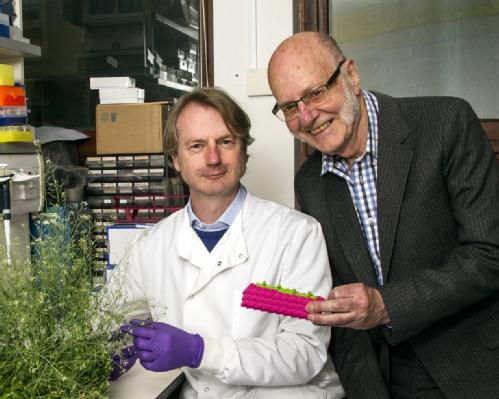EVOCATE (function and EVOlution of plant Cell wall Architecture for sustainable Technologies)

Plants fibres in timber, crops and food help us to live healthily and sustainably. Professor Ray Dupree (Department of Physics, University of Warwick) would like to congratulate his son and collaborator Professor Paul Dupree (Department of Biochemistry, University of Cambridge) on the award of a European Research Council Advanced Grant EVOCATE. Working together over the last few years using solid state NMR we have made significant advances in the understanding of the molecular architecture of plants. The ERC EVOCATE project will allow the Cambridge and Warwick teams to study how the architecture of plant fibres changed over millions of years of evolution and to further develop solid state NMR for this research.
Paul and Ray “are delighted and honoured to be awarded this grant in competition with scientists across Europe. The ERC recognises the value of high-risk high-gain long-term science. We will now have the opportunity to start research on basic science that we hope will be transformative in plant biology and renewable materials science.”
Professor Paul Dupree studied at Cambridge and has been teaching and researching there since 1996.
Professor Ray Dupree joined the Department of Physics at Warwick in September 1966 just before the arrival of the first Physics undergraduates and has been using Solid State NMR to study materials for most of his fifty-six and counting years at Warwick.
Commenting on the award Professor Mark Newton (Warwick Physics, Head of Department) said: “We are delighted that the ground-breaking research of Paul, Ray and the team has been recognised by this award. Ray is in the department every day and publishes prolifically in leading journals on a wide range of topics using Solid State NMR to provide fundamental understanding of the structure and properties of materials. Long may this continue!”
25 April 2022.
